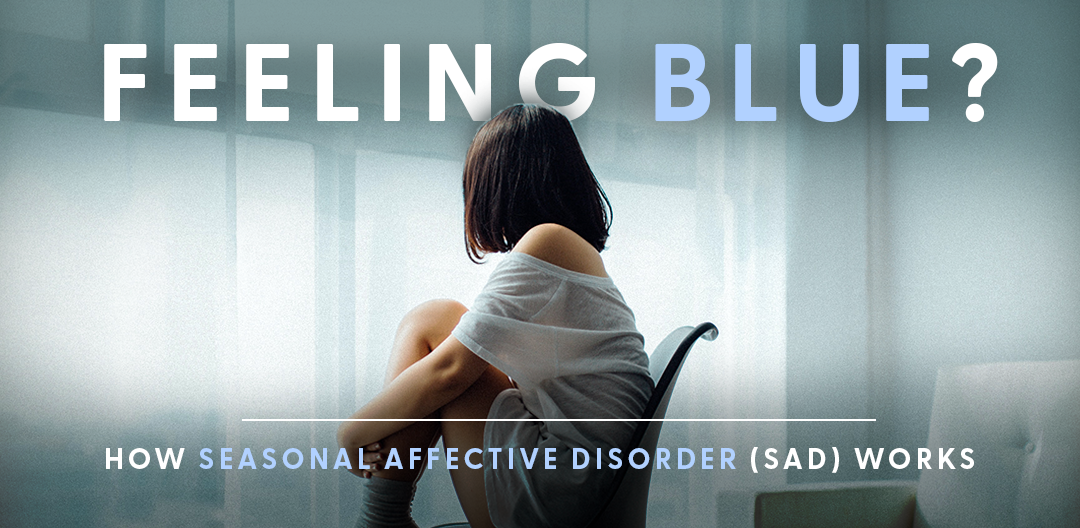
While 2023 is a new year, some things never change. The first is often the worst month for those with mental health issues – and it’s not as though February is much better. In the latest blog, we reach out to those who struggle with a post-Christmas drop-off.
January has many highlights. Okay, some highlights. For example, 21 January was Squirrel Awareness Day. But then most of us already know about them. Conversely, three days later is Moebius Syndrome Awareness Day. If that’s something you didn’t know about, well, it’s just as well there’s a dedicated awareness-raining day, isn’t it?
More pertinently for most, January is when we experience ‘Blue Monday’. Although we don’t. But might. Because while Blue Monday was created purely to promote holidays, like most myths, there’s an undercurrent of truth to it. Essentially, if you are feeling a bit rubbish there are several better reasons why that might be the case. In short, it’s when all the worst elements of the time of year collide to create a perfect storm of hideousness.
Really?
Think about it. It’s when seasonal cyclonic weather systems bring low, dark clouds. Christmas has left us with debt – a post-Christmas balance of £9.8 billion. particularly in the context of a cost-of-living crisis. At least 63% of households used credit cards – which just hit a 23-year high. Debt, and the sense of failure many of us feel having given up on well-intentioned New Year Resolutions, are both factors in an equation that quantifies this malaise.
The model is: [W + (D-d)] x TQ
M x NA
The seven variables are (W) weather, (D) debt, (d) monthly salary, (T) time since Christmas, (Q) time since failed quit attempt, (M) low motivational levels, and (NA) the need to act.
The World Health Organisation (WHO) class mental health as “a state of well-being in which an individual … can cope with the normal stresses of life, work productively and … make a contribution to his or her community.” If you’re not getting it, then you’re not alone. And there may be a label beyond the slightly frivolous Blue Monday tag.
Seasonal Affective Disorder (SAD)
SAD is sometimes known as "winter depression" because the symptoms are usually more apparent and more severe during the winter. Unhelpfully, some may have symptoms during the summer and feel better during the winter. But that doesn’t make it any less of a thing, or difficult to live with.
The NHS website lists many symptoms for the catch-all condition we call SAD. It’s helpful and unhelpful there are so many, as any number of them could be dismissed as a natural comedown from seasonal festivities and the prevalence of some pretty dismal weather.
The problem is that many of these problems overlap with say, depression or anxiety. And while SAD is by no means pleasant, it’s transient and will clear up as the weather improves. Of course, if it’s not, then someone with a more notable issue will suffer for many weeks, undiagnosed.
Really?
Yup. Anxiety, sadness, irritability, social withdrawal, fatigue, and lack of concentration are common symptoms of both SAD and depression.
Indeed, the UK mental health charity, MIND, recognises SAD as exactly that – a type of depression. And that’s a whole new discussion. Because like depression, SAD is the body’s reaction to the reduced levels of serotonin (the alert brain chemical) and increased presence of melatonin (the sleep brain chemical) – and all this is triggered by the reduced sunlight discussed earlier.
So, where does SAD end, and a mental health issue begin? That’s a tricky question to resolve in the last few words of a topical blog, and too serious a subject to simply skip over. The chances are that if your SAD symptoms were an issue before the clocks went back, and remain after they go forward again, then this is a subject to discuss with a specialist.
Next steps?
Ideally, that would be your GP, but many other agencies can help. Mind has several online resources and a helpline. Equally, the NHS offers plenty of digital support that may help assuage your fears or confirm your concerns.
Equally, your friendly local pharmacy can help with advice, and our online shop can help top up levels of vitamins that keep us on the level during the rest of the year, if not bright-eyed and bushy-tailed. If you’re looking for inspiration on that front, there’s an awareness day, just for you.
So, if you are new to us, and want to be part of the Coda story as it unfolds, then call us on 01323 924038. One of our growing pharmacy team will order your medication from your surgery and arrange your next delivery straight to your door. It’s that simple. Alternatively, register here for our prescription delivery service today, or just drop us a line and we’ll be in touch.
You can also register online at www.codapharmacy.co.uk